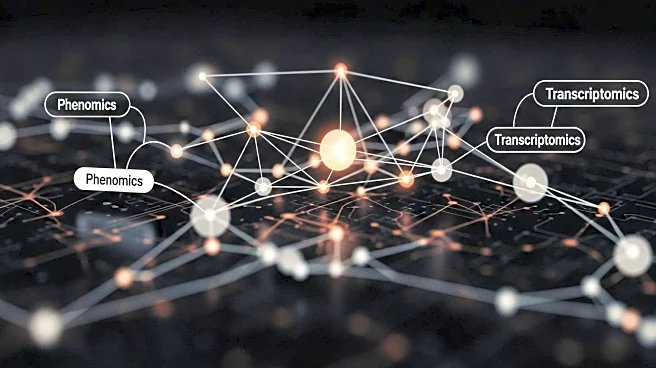What is the story about?
What's Happening?
Recursion, a biotechnology company, has been developing its phenomics and transcriptomics platforms for over a decade to enhance drug discovery processes. These platforms provide comprehensive views into human biology, utilizing microscopy imaging and molecular data to track DNA transcription into proteins. The company runs these assays at an industrial scale, generating nearly 20 petabytes of data. This data is used to build machine learning models that improve efficiency by relying on previously generated data. The platforms allow millions of experiments to be conducted under controlled conditions, with results stored and analyzed for repeatability. Supercomputers simulate aspects of human biology, creating predictive 'world models' that describe and forecast cellular behavior under various conditions.
Why It's Important?
The integration of artificial intelligence in drug discovery is reshaping scientific research and clinical trial design. By leveraging vast amounts of data and computational power, Recursion's platforms enhance the reliability and predictability of biological models. This approach could lead to more effective therapies and accelerate the development of new medicines. The ability to predict cellular responses to drugs can significantly impact the pharmaceutical industry, potentially reducing the time and cost associated with bringing new treatments to market. Stakeholders in healthcare and biotechnology stand to benefit from these advancements, as they promise more precise and personalized medical solutions.
What's Next?
Recursion's continued development of AI-driven platforms may lead to breakthroughs in drug discovery and personalized medicine. As the company refines its models and expands its data capabilities, it could attract partnerships with pharmaceutical firms seeking innovative solutions. The success of these platforms might prompt other biotech companies to adopt similar technologies, fostering a competitive environment focused on AI-driven research. Regulatory bodies may also need to adapt to these technological advancements, ensuring that new AI-based therapies meet safety and efficacy standards.















